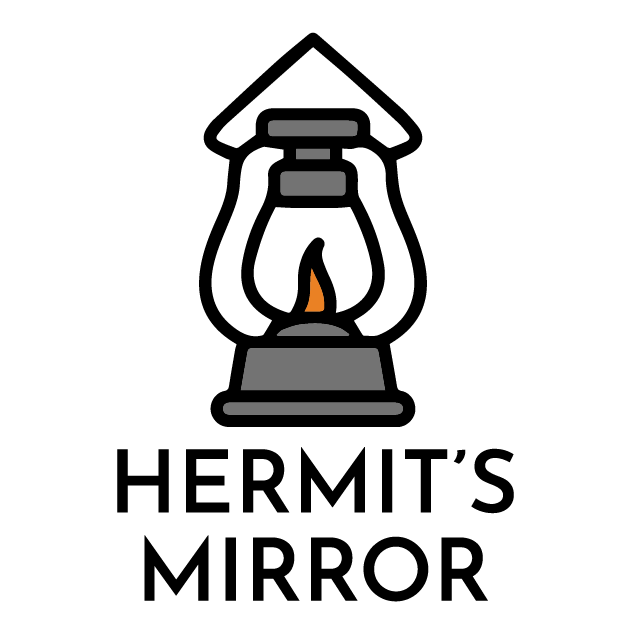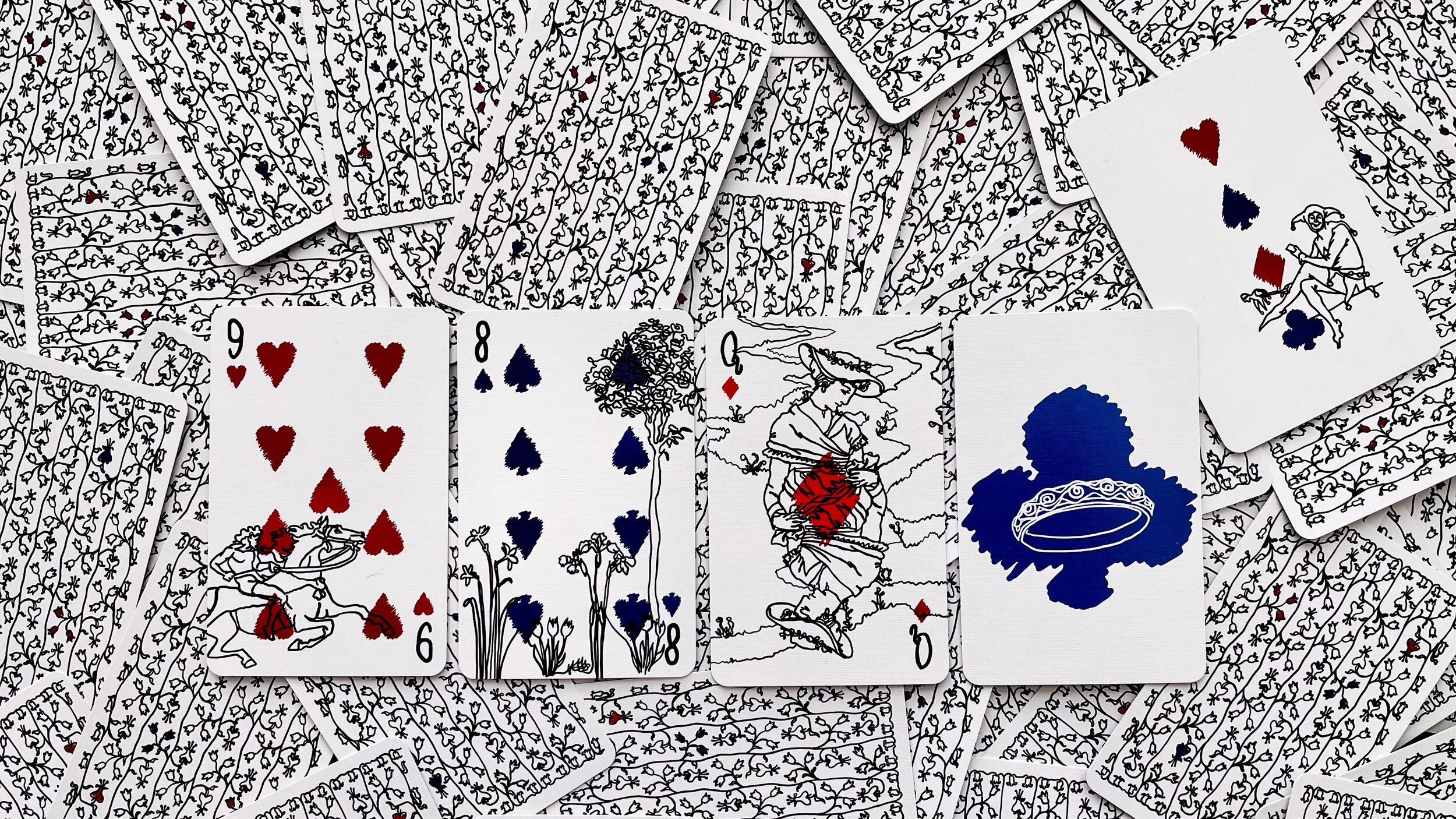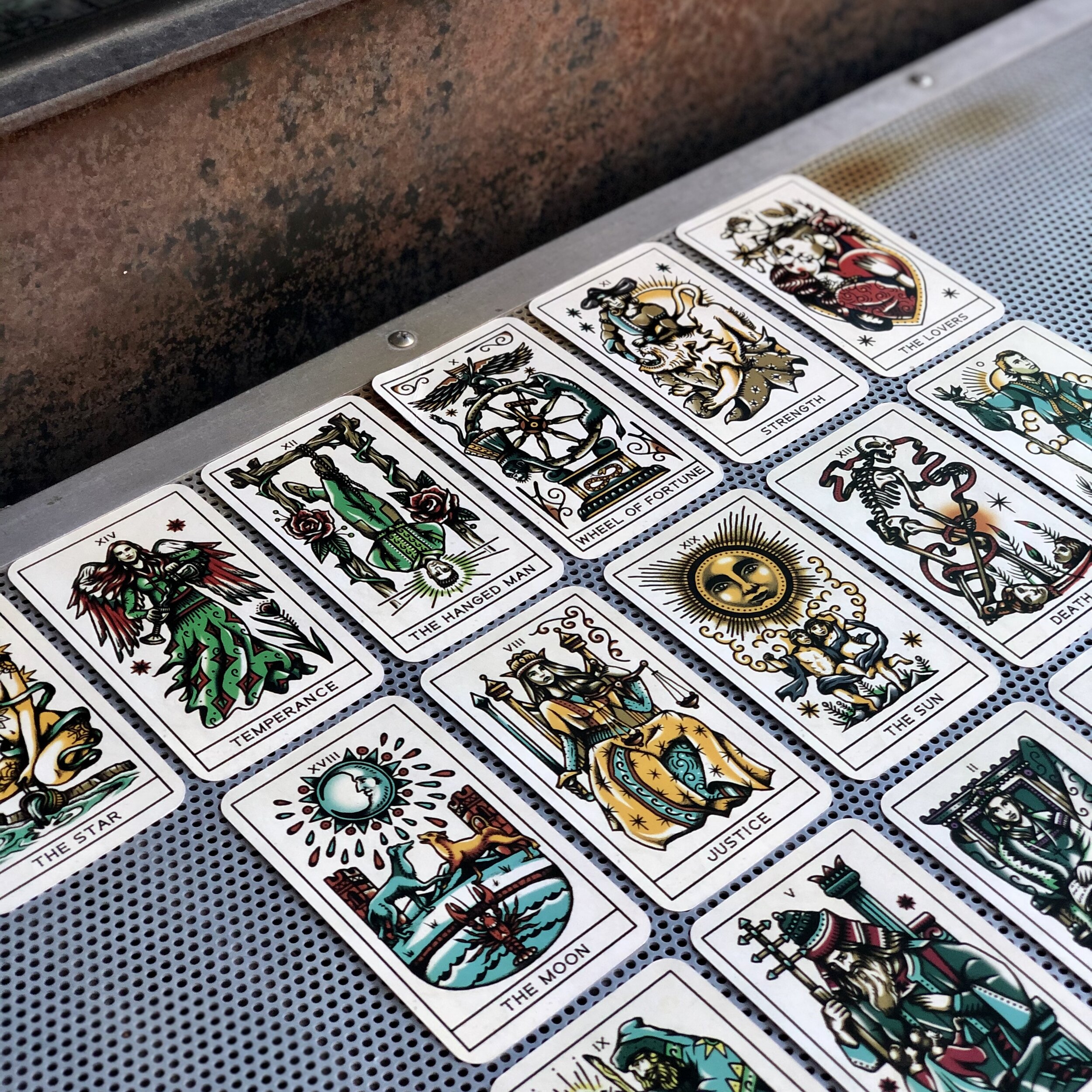Fortune-Telling in Divination
Traditional systems of cartomancy—by which I mean the sort practiced in the early 19th century—can be viewed in hindsight as a more literal and direct form of divination than many modern diviners find comfortable. Readings often focused on money and lovers and illness because that was the concern of its clientele. While it might seem short-sighted to diviners who see themselves as coaches or para-therapists, they aren’t any less important than whatever it is that we want to focus on.
After all, divination is for examining the knowable unknown.
Things like purpose and passion or spirituality and psychological reflection were not the sort of thing for which you turned to cartomancy two hundred years ago. Generally speaking, options were fairly limited. Information was limited—there was only so much knowledge available to a person. Social mobility was more limited—whether we actually have more social mobility now than then is debatable, but the American Dream depends on that belief. That doesn’t mean that people didn’t break through those limitations, but it probably wouldn’t have seemed useful for most people to examine.
Modern diviners like me want to help querents map out the future and bring possibility into reality, which requires a lot of internal reflection and self-awareness. The story people like us tell ourselves is that we have agency: we can weave our fates. But it’s not a given. It’s a belief. It helps us navigate the world and create change in our lives. It’s the basis for our personal brand of magic.
But many people, now as well as “back then,” see their lives as following an expected path with a few important milestones from birth to death. For example, getting married and having children is a given for most people. There’s no question about whether that will make them happy. There’s no need to examine what emotional baggage needs offloading or wounds need mending before getting to the place of a successful marriage or parenting. It’s a thing that will happen because it’s supposed to happen. The question for those querents is not if and after what self-examination, but when and with whom and how happy or healthy everyone involved is. Those are the main concerns.
There’s nothing wrong with wanting that kind of information. In fact, most of us who focus on the big picture stuff still want that predictive fortune-telling guidance. We just know (or say we know) that it doesn’t matter when you’ll meet the love of your life or get married or have children if the big-picture work hasn’t been done yet.
Those of us in the coaching realm of divination can get pretty smug about what we see as “fortune-telling.” I know I have. What’s the point of trying to find a new romantic partner if you haven’t dealt with the ways you sabotaged every previous relationship? It’s a valid question, but it’s also self-righteous.
And we do sometimes get self-righteous about it: I’ve talked with many a professional reader about how we can’t handle another client who wants to know when their ex is coming back to them. But it’s usually not a client-focused response. It’s unsatisfying to us because we want to work on the psychological or the inspirational, not on the predictive. That kind of question doesn’t lead anywhere that we as readers and coaches and guides find useful. (For what it’s worth, they probably are not coming back. Or if they are, it won’t be for long. That’s not shade or prediction. It’s just how relationships work.)
But that doesn’t mean that questions like that are not meaningful and that they don’t serve an important function for our client. And it definitely doesn’t mean that we shouldn’t know how to investigate those questions through divination.
Some of us choose not to use our tools that way. Others don’t believe we can’t use our tools that way. (That’s a very important bit of self-reflection.) But some of us just haven’t learned to use our tools that way.
As someone who errs on the side of caution when it comes to ethics and the law, I never promise psychic results or predictions. I don’t feel comfortable promising future outcomes because the future, as I understand it, is mutable. And I don’t know when data will pop into my head through one of the clairs, and if it does, I certainly can’t know in advance whether it will turn out to be “right” or otherwise meaningful. They can be beneficial additions to a reader, but they are not necessary to a powerful, transformative, and healing experience with the cards. (And don’t get it twisted: they are definitely not sufficient for a good reading.)
And since predictive fortune-telling can be a helpful addition to a reading, diviners should know how to create opportunities for such insights to come through. Whether they decide to use them is a different issue. There is value in discernment. But learning to work your cards in multiple ways doesn’t hurt your divination.
With that in mind, I’ll be introducing examples from different cartomancy traditions that I’ve studied over the next few months. And along the way, I’ll be weaving in some other divination traditions that aren’t quite so strict in their interpretations, at least not how I practice them.
Why? Because I want you to be a great diviner, for yourself and, as appropriate, for others. And that requires learning and practice.
In the meantime, if you’re curious where all this started, you should check out my bookTarot Tableau, which I wrote a little over two years ago to marry the fortune-telling power of Lenormand and tarot together. (There are free trainings on the system on my blog.)
And if you want to get a jump-start on learning multiple systems at once, you should definitely consider my Life Line Lenoracle, which combines three cartomancy systems in one: playing cards, Lenormand, and oracle cards. There is a (paid) recorded seminar on the deck and working through the three different methods using the one deck, in addition to the digital guidebook that comes with the deck.


